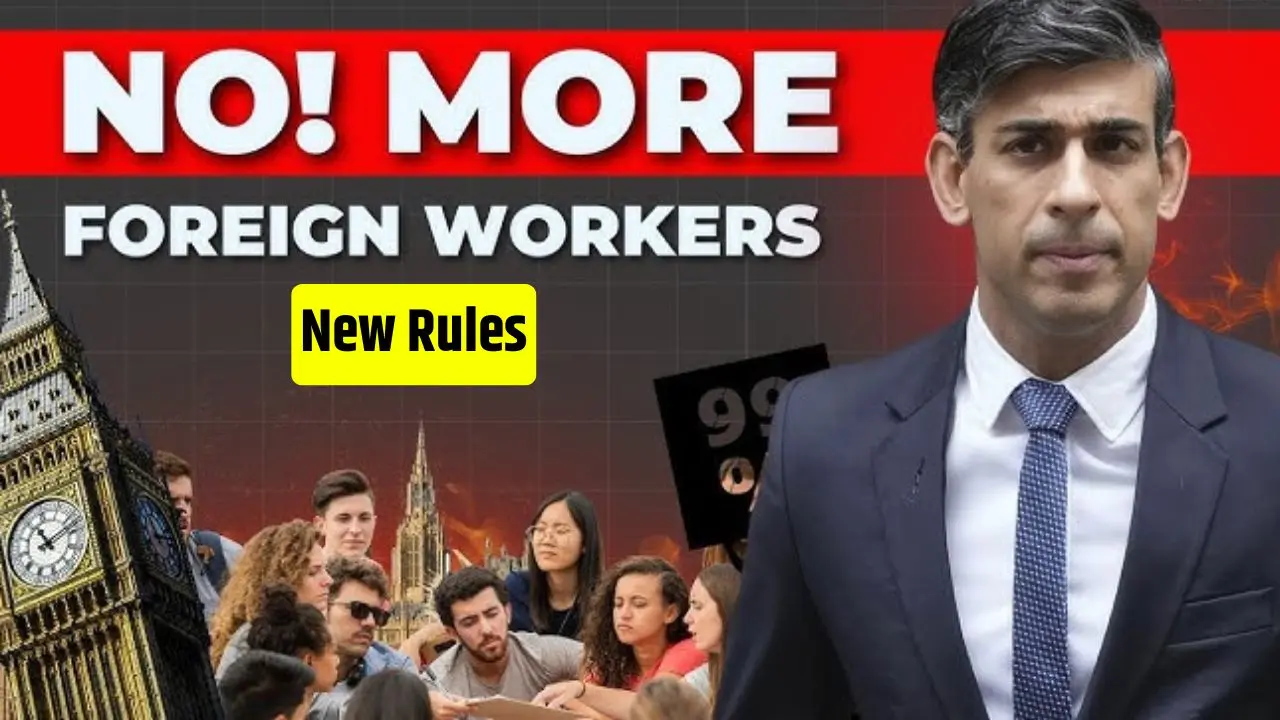The United Kingdom has introduced a series of new rules to regulate the employment of foreign workers, aiming to prioritize domestic labor, prevent exploitation, and ensure fair pay. These measures significantly impact both employers and migrant workers, reshaping the UK’s labor market.
Increased Salary Thresholds for Skilled Worker Visas
One of the most notable changes is the rise in the general salary threshold for Skilled Worker visas from £26,200 to £38,700 per year. This substantial increase, which came into effect on April 4, 2024, aims to reduce dependency on lower-paid foreign labor and encourage businesses to invest in British workers. The government argues that by setting higher pay standards, it can attract only the most skilled migrants while protecting domestic employment opportunities.
Abolition of the Shortage Occupation List
Previously, the Shortage Occupation List allowed employers to recruit foreign workers for certain jobs at lower salary levels due to labor shortages. However, this list has now been scrapped to ensure that all foreign workers meet the new salary thresholds, thereby preventing businesses from undercutting wages by hiring cheaper labor from overseas.
Introduction of the Immigration Salary List
Replacing the Shortage Occupation List, the Immigration Salary List has been introduced to identify skilled roles experiencing genuine shortages. Unlike its predecessor, this list will be reviewed regularly to ensure that sectors relying on foreign labor also invest in training domestic workers. The government’s objective is to prevent the long-term dependency on migrant labor while maintaining flexibility in industries that require specialist skills.
Stricter Regulations for Care Worker Sponsorship
The care sector, which has seen reports of worker exploitation, is facing tougher regulations. From April 9, 2025, care providers must first seek to employ UK-based care workers who have lost sponsorship before hiring from abroad. Furthermore, the minimum salary for foreign care workers under the Skilled Worker visa has been increased to £25,000 per year, ensuring fairer wages and reducing opportunities for exploitation.
Enhanced Employer Sanctions and Compliance Measures
To reinforce fair employment practices, businesses that violate visa rules or exploit foreign workers now face stricter penalties. Employers found guilty of breaching labor laws will be barred from recruiting foreign workers for two years, an increase from the previous one-year ban. These stricter regulations aim to deter unethical hiring practices and protect migrant workers from abuse.
Reforms to the Right to Family Life Considerations
The government is also reviewing how Article 8 of the Human Rights Act, which allows individuals to stay in the UK based on family life, is being applied. Authorities are concerned that this provision is being used to bypass immigration laws. By reassessing these cases, the government hopes to ensure that immigration policies are applied fairly and consistently.
International Collaboration to Combat People-Smuggling
Recognizing that illegal migration is a global issue, the UK is intensifying efforts to combat organized immigration crime. Prime Minister Keir Starmer has called for international cooperation to dismantle human trafficking networks, treating people-smuggling gangs with the same severity as terrorist organizations. The UK is investing in global initiatives to disrupt trafficking routes and prosecute offenders.
Implications for Employers and Foreign Workers
These changes demand significant adjustments from employers, who must now comply with higher salary requirements, stricter sponsorship rules, and enhanced labor regulations. Businesses will need to prioritize training local workers and ensure compliance with immigration laws to avoid penalties. For foreign workers, the increased salary thresholds and new sponsorship conditions mean that only those with competitive salaries and strong job offers will qualify for UK employment.
Conclusion
The UK’s recent immigration reforms reflect a shift toward prioritizing domestic labor while ensuring that foreign workers are treated fairly. These measures introduce higher pay standards, eliminate loopholes that previously allowed businesses to exploit lower-wage labor, and enforce stricter compliance. Employers and prospective workers must now navigate these new regulations to align with the evolving immigration landscape.



